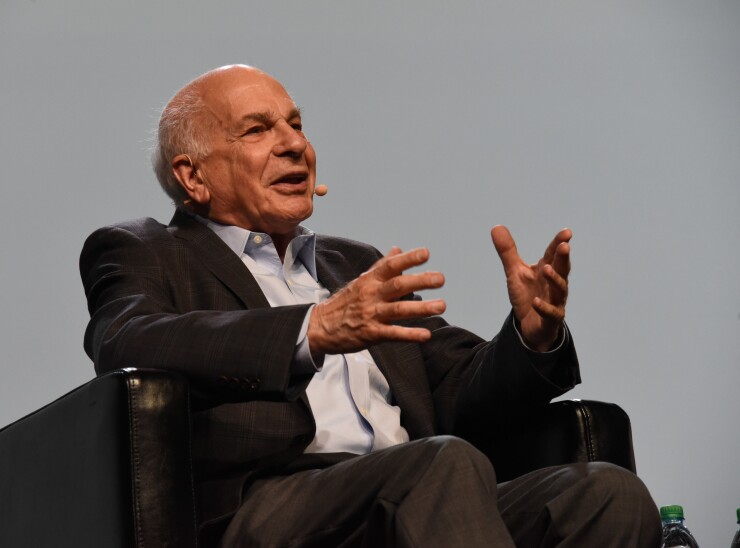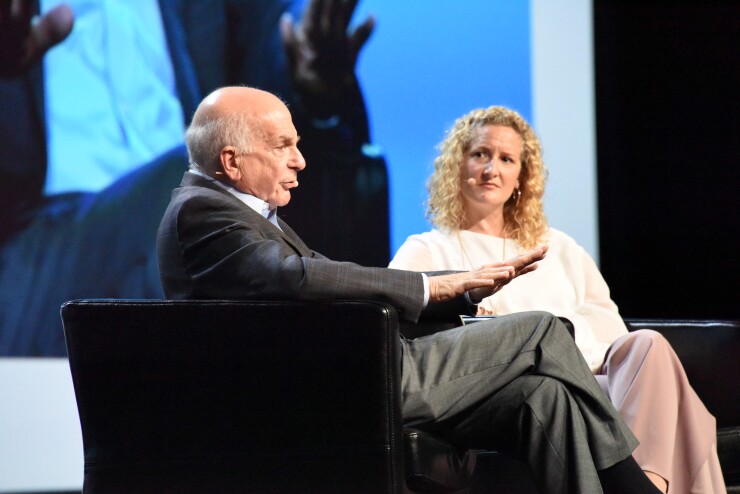CHICAGO — About 15 miles north and 36 years ago, I got my MBA at Northwestern with an emphasis in finance and economics. I was trained using traditional economics and blindly accepted that I was a logical human, working to maximize my utility and properly assess risk. I would never think of following the herd. In short, I bought into the fact that I was a rational human being.
Today, I ask myself "how could I have been so stupid?"
Daniel Kahneman, who won the Nobel Prize for economics in 2002, was among the first to expose the holes in my mental model, and I've been a student (and teacher) of behavioral economics for more than 15 years.

As a psychologist who wasn't trained with that same traditional economic theory, Kahneman had an advantage, which allowed him to think differently than economists. Among his many contributions to the science, he is perhaps best known for his experiments on loss aversion and prospect theory: Losing one dollar feels roughly twice as painful as gaining a dollar feels pleasurable. I haven't heard much from him in a while, so I couldn't wait to see what he's been working on lately.
At Morningstar’s conference, Kahneman discussed how originally his work on decision-making was ignored by economists but followed by psychologists. Today, behavioral economics is mainstream in many business schools. Apparently, I was just three decades too early!
While some financial professionals use behavioral economics to manipulate people, most use its lessons to help people, Kahneman said.
Kahneman is adamant that planning is about striking the right balance between regret and wealth maximization. He said he worked with a firm that provides financial planning for wealthy individuals, and says the firm developed two portfolios for clients — one risky and one safe.
I translate Kahneman's theory on losses hurting more than gains feel good, to the equivalent of picking a more conservative portfolio. I was a bit surprised he did not discuss how we feel about risk being unstable, i.e. high risk tolerance in good times and low in bad.
Overconfidence in predicting the market and securities is dangerous for investors and advisors, Kahneman says. Admitting we don't know is healthy. Helping the client think through goals, dreams and fears is where an advisor can best add value.

But are financial planners expected to be psychologists? Kahneman suggested some elements of psychology, like role-playing, could be part of the financial planning curriculum. Quite frankly,
I have to respectfully disagree on this point. I found asking clients what they would do, hypothetically, when stocks plunge 50% is quite different than what they will actually do when stocks fall 50%.
I asked Kahneman about this. He responded that helping the client imagine the regret still adds value. Based on my experiences (which are open to bias), I think there is a negative correlation between how sure someone thinks they will want to buy stocks after a plunge and what they will actually want after a plunge. Still, I completely agree with Kahneman that helping the client imagine the pain adds value and leads to taking on a lower risk allocation when stocks are near an all-time high, as they are now.
Finally, Kahneman discussed what he is working on now. While he has done quite a bit of research on systematic biases, he is now fascinated with unsystematic errors. There is a degree of randomness in decision-making, which he calls noise. An example: Insurance underwriters were presented with the same facts, but they returned a huge variation of ratings. That led him to conclude that underwriters weren't adding value. Algorithms may be better at reducing noise, he says.
Though I think this is probably correct, artificial intelligence is not great for human employment. I can also extrapolate that software may be better at running portfolios than humans. Unfortunately, in my view, the humans writing the software for robo advisors have outsmarted themselves with complexities and fees.
Hearing Kahneman live was like seeing a rock star. He has helped me better understand myself.
Still, understanding my irrationalities and controlling them are two different things.





